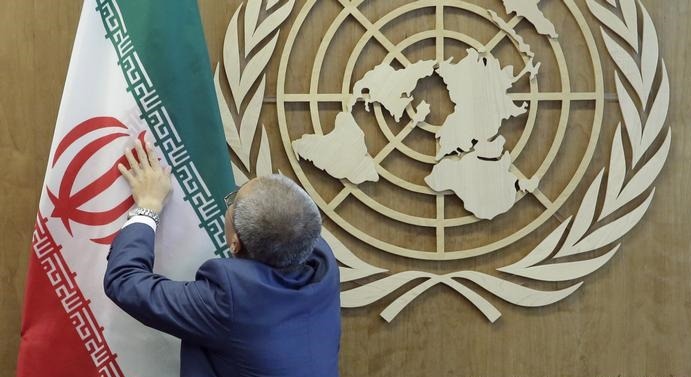UN Secretary-General Antonio Guterres announced on January 13 that Iran, along with countries such as Libya, Comoros and Central Africa, are at the risk of deprivation from voting right for non-payment of their membership dues for more than two years. In fact, Guterres has warned member states that UN funding will last until the end of October, and if indebted countries do not pay their dues, they will be forced to sell some of the organization’s assets. The 129 member states have paid 1.990 billion dollars in membership fees and the UN budget deficit is 1.386 billion dollars.
Although Iran’s membership fee has been paid to the United Nations over the past few years despite widespread financial and commodity sanctions, and negotiations have been underway since 2018 to pay for this year’s membership fee through a secure channel, it appears that this point has not been taken into account, and UN officials have made no distinction between non-payment of debts as a result of sanctions and blocking of financial and banking channels and access to international instruments with non-payment of debts.
However, according to Article 19 of the UN Charter, if the United Nations concludes that non-payment of membership dues by a country is due to factors beyond the authority and control of that country, it may not suspend its voting rights. Even Iran’s latest offer to pay off this debt has been the withdrawal of blocked resources in South Korea with the permission of the Central Bank of Iran.
Apart from the ongoing negotiations, an important point in this matter is the enforceability of the laws and their provisions at international level and negligence or lack of information of those laws. In other words, the Secretary-General of the United Nations is expected to have full authority over those laws and provisions and consider the provisions of each law. Such negligence, even if it is inadvertent and aimed at one country, in the long run erodes the trust of other members of the United Nations and creates a sense of discrimination among countries based on their level of influence and power.
Although Trump’s flaunt at international arena in disregarding international and regional protocols and treaties as well as violating international law, including the withdrawal from the Joint Comprehensive Plan of Action (JCPOA), has shown that enforcing laws at the international level, without a supportive power, is meaningless and in practice, exercise of influence plays a more prominent role in international relations. This position, of course, is not a value judgment against world order or conspiracy theory; it rather shows inferences based on the facts of the past few years.
Indeed, the UN Secretary-General’s lack of information of Article 19 of the UN Charter seems unlikely, and it seems that pressure from rival regional countries and the United States has even affected the mentality of international organizations; while the officials of those organizations must take neutral positions in every field; the change in Saudi Arabia’s position over the past few years and its presence as the chair of the Women’s Rights Panel in the Human Rights Council further demonstrates the violation of this neutrality and discrimination. All in all, despite severe US sanctions against Iran over the past few years and heavy economic and financial sanctions for violating sanctions, some countries have opened the door to international opportunism, and have taken steps from blocking Iran’s financial resources up to other measures.










0 Comments